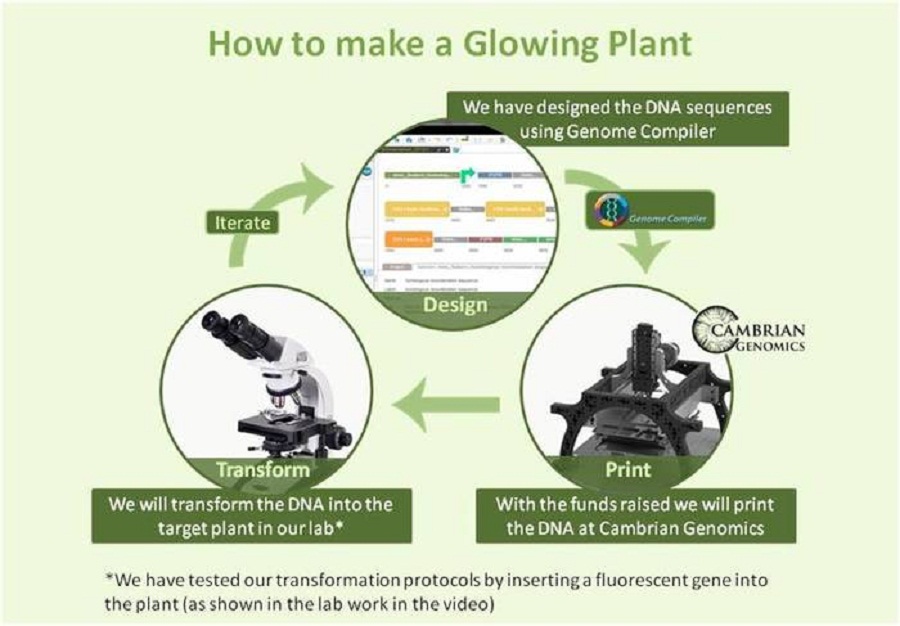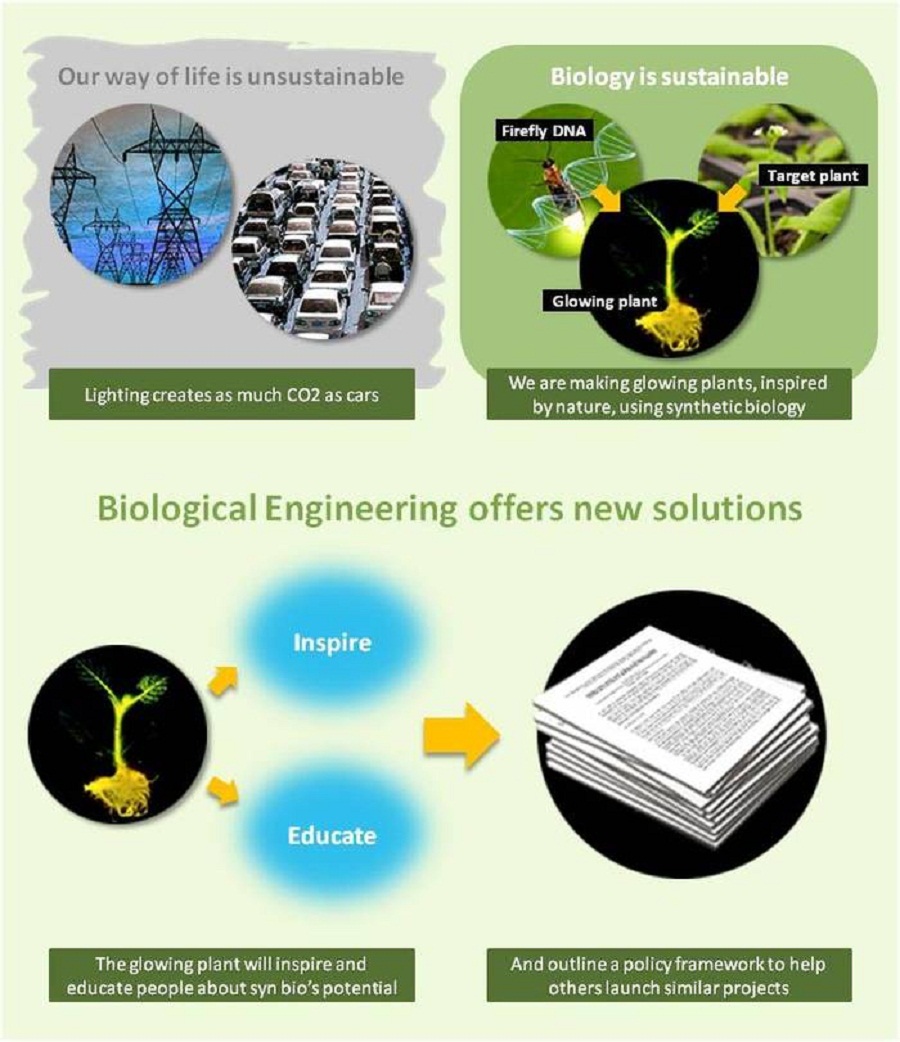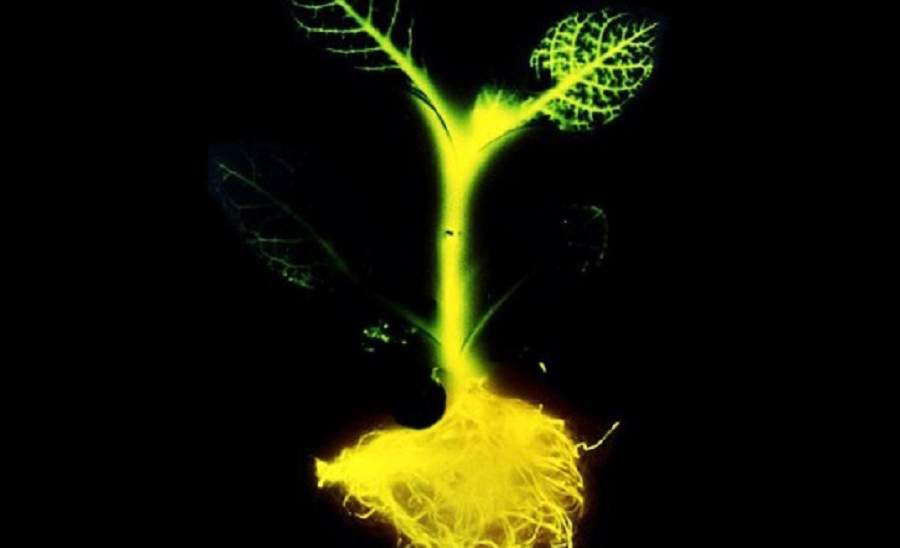How Glowing Plants Could Replace Light Bulbs
Bioluminescent plants and crowd funding are set to save the world from the carbon monster.
One day, glowing plants might provide enough energy to light up entire buildings. At least, that's the hope of Antony Evans, Kyle Taylor and Omri Amirav-Drory. They have the science to justify it, and the support behind their Kickstarter campaign to attempt its realisation.
Their plan has been made possible by developments in synthetic biology over the past 30 or so years. Back in 1986, scientists cultivated the very first radiant seeds but discovered that their effectiveness required the addition of luciferin (the pigment that illuminates fireflies). Three years later, the luciferase-luciferin gene was sequenced.

However, it wasn't until 2010 that researchers at the State University of New York managed to add the gene to plants, giving them a dim glow. Around the same time, on the other side of the Atlantic, the University of Cambridge's iGem team was recycling luciferase to create bacteria that beamed with the ferocity of Kryptonite.
Fast-forward three years, and the aforementioned trio of scientific talents is building on these developments to hatch a plan that has the dramatic reduction of CO2 at its heart. They've already raised the $65,000 necessary to achieving their initial aim — the cultivation of Arabidopsis plants. Now, they're on the cusp of reaching their first stretch goal — $400,000, which will enable the development of glowing roses.

So far, 6,981 backers have committed funds, to the tune of $395,135. Supporters who pledge $40 or more are promised a batch of seeds, meaning they'll be able to grow their own glowing plants at home. $150 or more buys a bioluminescent rose.
The project has received the backing of some of the highest fliers in the fields of Genetics, Biotechnology and Biochemistry, including George Church (Head of Genetics at Harvard Medical School), Andrew Hessel (Autodesk Distinguished Research Fellow) and Austen Heinz (Founder of Cambrian Genomics).
[Via Inhabitat]





